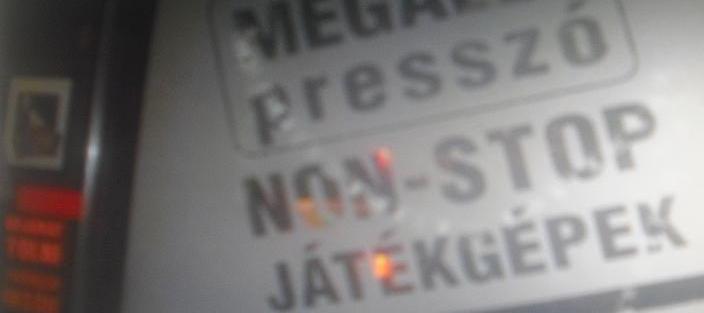By Hakeem Babalola
A coffee bar near Balha Lujza square is still not serving blacks even after a controversial report was published about the racial policy of the management.
This development has cast doubt on whether the Hungarian government actually holds the power to compel pub and bar owners to shun discrimination as they attend to the public.
Situated at Rákoczi ut in downtown Budapest, the bar is known for its dis
criminatory policy towards blacks.
Although the waitresses often try as much as to avoid saying directly to their targets to get out; we don’t serve blacks here, their body language usually let out the cat out of the bag.
The investigation carried out revealed that the waitresses often find excuses as soon as a black man walks in. They may look at each other’s eyes, or they may pull their hair and then look down. In some cases they may say they don’t speak English. However if the person speaks Hungarian, then other excuses quickly surface.
It may be that there is the need to wait for ten minutes – which often turns endlessly –because “waitresses are taking over from each other”. Or they may come together; mumble some inaudible words to each other – all in an inauspicious manner to tell the “unwanted” customer to get out.
Meanwhile, such implausible excuses often take place while the white customers are being served or attended to.
According to further finding, discrimination towards black guests is not as pronounced at another beer garden next to this place as alleged, which allows maximum of five black customers per night.
”It is troubling to know that this kind of thing is happening in Hungary in this era of globalization,” said Johnston Mboni who said he was refused entry many times.
Although the Hungarian Constitution specifically outlaws any form of discrimination in private enterprises open to the public, the history of fencing off blacks – especially Africans – at nightclubs is appalling.
Discrimination at nightclubs is not a new complaint heard at Cit Hall. “But I can’t imagine a situation like this,” said András Keszthelyi, former press secretary to the Mayor of Budapest.
In 1995, the then Hully Gully nightclub prevented Africans from entering as it often becomes a “private club” to discourage certain patrons. The club was later closed down only to reincarnate in the year 2002 in form of Rio, a summer garden rendezvous, which refused entry to blacks simply because, according to the management, the law enforcement officials were looking for three dark skin people. Government officials maintain that it’s wrong and that the government takes a political stand against racism and intolerance.
Like other places in the region, there are different associations which claimed to bring awareness to the plights of migrants.
Mr. Lorincz Marcell of subjective values Foundation said that racism is a social problem and that it’s not new “but we must act against it at all times”.
Menedék Association for Migrants once started a project against xenophobia, a welcome development among migrants. It distributed flyers to bars, pubs, shops and clubs frequented by foreigners for awareness.
Mahatma Gandhi Human Rights Movement chooses football to fight unfair treatment in this Danube region.
Meanwhile, the question many Africans who have experienced such discrimination often ask is whether the activities of these NGOs are enough to curb and, or sanction places like Megálló Bar.
“I don’t think so,” declared Sillas. “I don’t even believe in this integration propaganda. It’s all talk talk without action”.








